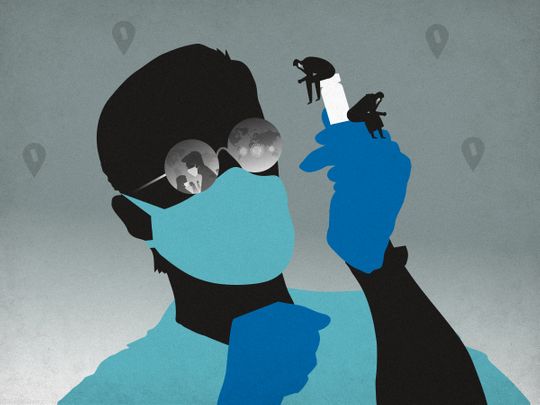
International community must set politics aside if it is serious about finding out how coronavirus originated and what can be done to prevent another pandemic. Prejudice and assumptions will not help science and the global scientific community must come together to identify the source of the virus that has ravaged the world since January last year.
There is no doubt about the significance of this investigation. But it is the responsibility of the World Health Organisation to ensure that this exercise is above geopolitics and narrow considerations.
A WHO team of researchers who visited Wuhan in January as part of investigations into the origins of coronavirus on Tuesday concluded that the virus had probably been transmitted from bats to humans through another animal, and that a lab leak was “extremely unlikely”.
Deeper investigation needed
However, soon after the release of the report, WHO Director-General Tedros Adhanom Ghebreyesus said a deeper investigation was required into the lab leak theory, a suggestion that appeared to contradict his own team of experts. Soon after the report was released, a group of nations, including Australia, Canada, Britain and the United States said China did not give full access to the WHO investigators, a charge rejected by Beijing on Wednesday.
Trust and consensus are two prerequisites for an investigation of this nature because the outcome has a direct bearing on health and safety of people. Therefore, the WHO, as a global health organisation funded by member countries, has a big role in building trust and evolving consensus.
The departure of the WHO team to Wuhan in January under heavy media glare and reports in Western media prior to that did not help in building an environment that was necessary for this kind of scientific inquiry. Some media outlets went to the extent of predicting the line of WHO investigation and even prejudged its outcome.
Also on Tuesday, heads of 20 countries and global agencies called for an international treaty to combat future pandemics. The proposed treaty seeks to provide universal and equitable access to vaccines, medicines and diagnostics, a welcome suggestion that deserves consideration of the international community.
Lessons learnt while battling coronavirus pandemic will come handy and a global treaty will immensely help international community in mounting a coordinated response to future outbreaks. However, global treaties can become effective only when powerful countries are on the same page and when mutual trust — instead of finger-pointing — is gradually evolved.








